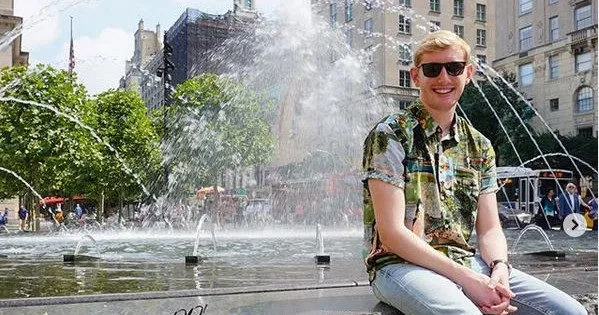College swimmer was afraid to come out and carry ‘the weight of being an out gay athlete’ on his shoulders

Matthew Dynneson (Instagram)
A college swimmer has revealed that he was afraid to come out as gay while competing because he felt that he couldn’t carry “the weight of being an out gay athlete” on his shoulders.
Matthew Dynneson revealed in an article for Outsports that the prospect of coming out while he was competing was daunting.
In the article, Dynneson wrote that swimming was always “a huge part” of his life and said he is proud to see “how much love and hard work I put into my swimming career over the years”.
After retiring from swimming in 2018, Dynneson made the brave decision to come out as gay.
Coming out as gay ‘wasn’t as easy as most people might think,’ swimmer reveals.
“It wasn’t as easy as most people might think,” Dynneson wrote. “I didn’t plan on coming out while I was competing because it wasn’t the right time for me. As much as I loved the sport and spending time with my teammates, it felt like I couldn’t carry the weight of being an out gay athlete on my shoulders. Not yet.”
He also said that he never revealed his identity to his teammates because he didn’t know how to deal with the situation.
As much as I loved the sport and spending time with my teammates, it felt like I couldn’t carry the weight of being an out gay athlete on my shoulders.
“I didn’t know how it would affect me and my relationship with them. It’s something that no athlete should ever have to worry about.”
Looking back, he said he wishes he had been more honest with his teammates at St Olaf and Carthage – but also said he knows that he dealt with the situation in the best way he could at the time.
He was helped along in coming out when he met his boyfriend.
Matthew Dynneson was helped in coming out when he met his boyfriend, Brazilian volleyball player Felipe Oliveira. Meeting Felipe and finding out about other LGBT+ athletes helped Dynneson to reralise that it is OK to be gay and be in sport.
“This was a lesson I struggled learning as a competitive swimmer,” he wrote.
Being LGBT+ in sport can still be an extremely difficult experience for athletes. A recent EU-funded project from Outsports found that nine in 10 LGBT+ people believe that homophobia and transphobia in sport is a problem.
Of the participants who were currently active in a sport, 16 percent of them reported a negative experiences in the last 12 months linked to their sexual orientation or gender identity.
This figure jumps to 46 percent in the case of trans women.
These negative experiences most commonly involved verbal insults or slurs (82 per cent), discrimination (75 per cent) or verbal threats (45 per cent).

